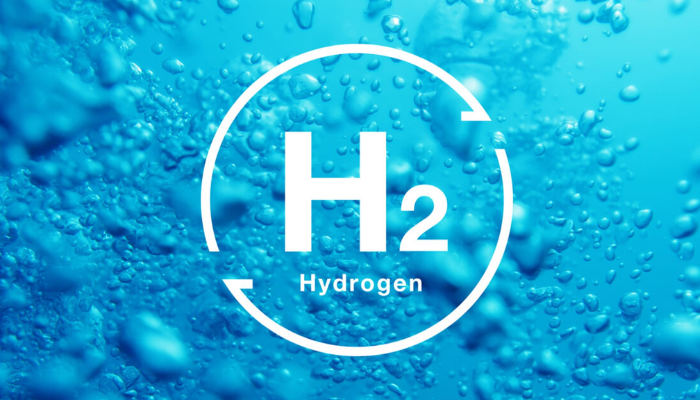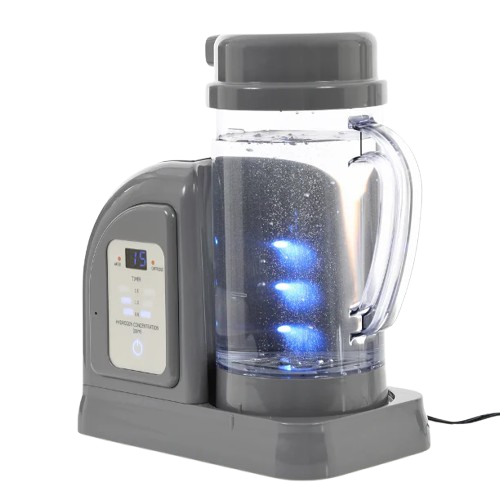Living with persistent inflammation can feel like an endless battle against your own body. The fatigue, pain, and unpredictability of autoimmune flare-ups often leave sufferers searching for answers beyond conventional treatments. For many individuals with conditions like rheumatoid arthritis, inflammatory bowel disease, multiple sclerosis, and psoriasis, the quest for sustainable relief has led to exploring metabolic approaches that address inflammation at its cellular roots.
Recent scientific research has revealed compelling evidence about ketogenic diets as a therapeutic tool for managing autoimmune inflammation. This metabolic approach, which shifts the body’s primary fuel source from glucose to ketones, appears to influence inflammatory pathways in ways that conventional anti-inflammatory diets cannot match. Understanding these mechanisms provides valuable insights for those seeking evidence-based alternatives to manage their autoimmune symptoms.
The Science Behind Ketogenic Metabolism and Inflammation
The ketogenic diet fundamentally alters how cells produce and utilize energy. When carbohydrate intake is severely restricted, the liver begins converting fatty acids into ketone bodies—primarily beta-hydroxybutyrate (BHB), acetoacetate, and acetone. This metabolic shift does more than simply provide an alternative fuel source; it initiates a cascade of anti-inflammatory effects at the cellular level.
Research published in Nature Medicine revealed that BHB directly suppresses the NLRP3 inflammasome, a critical component of the inflammatory response [1]. The study demonstrated that “BHB inhibits the NLRP3 inflammasome by preventing K+ efflux and reducing ASC oligomerization and speck formation.” This mechanism explains how ketogenic diets can reduce the production of inflammatory cytokines IL-1β and IL-18, which play central roles in autoimmune pathology.
Furthermore, ketogenic metabolism generates fewer reactive oxygen species (ROS) compared to glucose metabolism. A comprehensive review in Nutrients explained that this reduction in ROS production leads to decreased activation of phospholipase A2 and subsequently lower eicosanoid formation—key mediators of inflammation [2]. The metabolic efficiency of ketone utilization also increases cellular adenosine levels, which research has shown to have anti-inflammatory and analgesic effects.
Cellular Mechanisms: How Ketones Modulate Immune Function
The anti-inflammatory effects of ketogenic diets extend beyond simple metabolic changes. Research from Frontiers in Immunology has demonstrated that ketone bodies influence immune cell behavior in multiple ways [3]. Ketones promote the polarization of macrophages toward an anti-inflammatory M2 phenotype, which is associated with tissue repair and resolution of inflammation rather than perpetuation of inflammatory damage.
This immune modulation occurs through several pathways. Ketone bodies affect the function of T cells, dendritic cells, and other immune mediators involved in autoimmune responses. Emerging research has shown that molecular hydrogen, a selective antioxidant that targets harmful hydroxyl radicals while preserving beneficial signaling molecules, may complement these ketogenic effects by addressing oxidative stress through parallel mechanisms [11].
Recent findings from the University of California, San Francisco, have added another dimension to our understanding. Researchers discovered that ketogenic diets influence the gut microbiome in ways that affect autoimmune responses [4]. The additional BHB produced during ketosis prompted the gut bacterium Lactobacillus murinus to produce indole lactic acid (ILA), which blocked the activation of T helper 17 immune cells—key players in multiple sclerosis and other autoimmune disorders.
Clinical Evidence: Ketogenic Interventions in Specific Autoimmune Conditions
Rheumatoid Arthritis
A groundbreaking double-blind randomized controlled trial published in Nutrients examined the effects of inducing nutritional ketosis in rheumatoid arthritis patients [5]. The study reported “a significant reduction in SDAI [Simplified Disease Activity Index] from baseline to week 16 in the test group and a significant increase in β-hydroxybutyrate (BHB) levels, while no improvement in SDAI was observed in the control group.”
Additional research has indicated that BHB may exert inhibitory effects on IL-17, a cytokine heavily implicated in rheumatoid arthritis pathogenesis [9]. These findings suggest that ketogenic approaches may offer meaningful relief for RA sufferers seeking alternatives to conventional immunosuppressive therapies.
Multiple Sclerosis
Clinical trials have yielded promising results for multiple sclerosis management through ketogenic interventions. A six-month study reported significant improvements in patient outcomes, with researchers noting “a significant decline in fatigue and depression scores” and improvements in “MS quality-of-life physical and mental composite scores” [6]. These improvements occurred alongside the metabolic benefits, suggesting that ketogenic diets may address both the inflammatory and symptomatic aspects of MS.
The mechanisms behind these improvements appear multifaceted. Beyond direct anti-inflammatory effects, ketogenic diets may support neuronal energy metabolism and reduce neuroinflammation through promotion of anti-inflammatory immune phenotypes.
Inflammatory Bowel Disease
Recent case studies have documented remarkable responses to ketogenic interventions in inflammatory bowel disease. Research published in Frontiers in Nutrition reported on 10 IBD cases, including both ulcerative colitis and Crohn’s disease, that responded to ketogenic protocols [8]. The study noted that “clinical improvements were universal, with clinical improvement scores ranging between 72 and 165 points on the IBDQ [Inflammatory Bowel Disease Questionnaire].”
These findings align with the understanding that gut inflammation involves many of the same pathways targeted by ketogenic metabolism, including NLRP3 inflammasome activation and oxidative stress. The addition of molecular hydrogen therapy through devices like the Lourdes Hydrofix Premium Edition from Holy Hydrogen may provide complementary support by selectively neutralizing harmful radicals in the gut environment [11].
Psoriasis and Psoriatic Arthritis
A crossover trial comparing ketogenic and Mediterranean diets in psoriasis patients revealed striking differences in outcomes [7]. After the ketogenic phase, patients displayed significant reductions in the Psoriasis Area and Severity Index (PASI), Disease Activity index for Psoriatic Arthritis (DAPSA), and inflammatory cytokines including IL-6, IL-17, and IL-23. Notably, no significant improvements were observed during the Mediterranean diet phase, despite its reputation as an anti-inflammatory dietary pattern.
Meta-Analysis Findings: Consistent Anti-Inflammatory Effects
A comprehensive meta-analysis published in 2025 examined the effects of ketogenic diets on inflammatory markers across multiple studies [10]. The pooled findings demonstrated that ketogenic diets significantly lowered TNF-α and IL-6 levels compared to control groups. These reductions in key inflammatory cytokines provide mechanistic support for the clinical improvements observed in autoimmune conditions.
The consistency of these findings across different study populations and autoimmune conditions suggests that the anti-inflammatory effects of ketogenic metabolism represent a fundamental biological response rather than a condition-specific phenomenon.
Synergistic Approaches: Enhancing Ketogenic Benefits
While ketogenic diets demonstrate impressive anti-inflammatory effects independently, emerging research suggests that combining metabolic therapy with targeted cellular support may enhance outcomes. Molecular hydrogen, recognized for its selective antioxidant properties, addresses oxidative stress through complementary mechanisms [11].
Research in Frontiers in Physiology detailed how hydrogen not only scavenges hydroxyl radicals but also upregulates the Nrf2 antioxidant pathway and downregulates the pro-inflammatory NF-κB pathway [12]. These mechanisms align closely with the oxidative stress reduction achieved through ketogenic metabolism, suggesting potential synergistic benefits.
A clinical trial in rheumatoid arthritis patients demonstrated that molecular hydrogen treatment significantly reduced disease activity and inflammatory biomarkers including IL-6 and MMP-3 [13]. When considered alongside the ketogenic effects on similar pathways, this suggests that combining approaches may offer more comprehensive inflammatory control than either intervention alone.
Practical Implementation and Quality Considerations
For individuals considering ketogenic protocols for autoimmune management, several factors warrant consideration. The quality and purity of any supplements used during ketogenic transitions matter significantly. Unlike generic recommendations that overlook supplement quality, choosing lab-certified, medical-grade options ensures that additional oxidative stress from contaminants doesn’t counteract the diet’s benefits.
Medical supervision during dietary transitions remains crucial, particularly for those on immunosuppressive medications or with complex medical histories. The metabolic shift to ketosis can affect medication metabolism and electrolyte balance, requiring careful monitoring during the adaptation phase.
The timing and strictness of carbohydrate restriction may vary based on individual conditions and responses. Some individuals may achieve therapeutic ketosis with moderate restriction, while others require more stringent protocols to generate sufficient ketone levels for anti-inflammatory effects.
Understanding the Bigger Picture
The evidence supporting ketogenic interventions for autoimmune inflammation continues to grow, revealing a therapeutic approach that addresses root metabolic dysfunction rather than merely suppressing symptoms. By shifting cellular metabolism away from glucose dependence, ketogenic diets appear to create an internal environment less conducive to inflammatory cascade activation.
The research demonstrates that this metabolic approach influences multiple inflammatory pathways simultaneously—from direct inflammasome inhibition to immune cell modulation and microbiome effects. This multi-faceted impact may explain why some individuals experience more comprehensive relief with ketogenic protocols compared to targeted pharmaceutical interventions.
As our understanding of these mechanisms deepens, the potential for combining metabolic therapies with complementary approaches like molecular hydrogen therapy becomes increasingly compelling. The convergence of these evidence-based strategies offers hope for those seeking to address autoimmune inflammation through natural, scientifically-validated methods.
Conclusion
The scientific evidence supporting ketogenic diets for autoimmune inflammation management has evolved from preliminary observations to well-documented mechanisms and clinical outcomes. Research has consistently demonstrated that the metabolic shift to ketosis initiates anti-inflammatory cascades through NLRP3 inflammasome inhibition, reduced oxidative stress, immune modulation, and microbiome influences.
Clinical studies across multiple autoimmune conditions—from rheumatoid arthritis to inflammatory bowel disease—have shown meaningful improvements in disease activity markers and quality of life measures. The addition of complementary approaches like molecular hydrogen therapy may enhance these benefits by targeting oxidative stress through selective antioxidant mechanisms.
For individuals navigating the challenges of autoimmune conditions, understanding these evidence-based options provides valuable perspective on potential paths forward. As research continues to unveil the intricate connections between metabolism and inflammation, the integration of metabolic therapies with cellular support strategies represents a promising frontier in autoimmune management.
Learn more about the cellular mechanisms behind natural anti-inflammatory approaches and explore evidence-based strategies for comprehensive inflammation management.
Disclaimer: These statements have not been evaluated by the FDA. Holy Hydrogen does not make any medical claims or give any medical advice. This information is for educational purposes only and should not replace professional medical consultation. Always consult with qualified healthcare providers before making significant dietary changes, especially if you have existing health conditions or take medications.
References
https://www.nature.com/articles/nm.3804
https://www.ncbi.nlm.nih.gov/pmc/articles/PMC8706441
https://www.frontiersin.org/journals/immunology/articles/10.3389/fimmu.2024.1425816/full
https://www.ucsf.edu/news/2024/11/428771/how-keto-diet-could-one-day-treat-autoimmune-disorders
https://www.ncbi.nlm.nih.gov/pmc/articles/PMC10490289
https://pubmed.ncbi.nlm.nih.gov/39296504/
https://www.ncbi.nlm.nih.gov/pmc/articles/PMC10931171
https://pubmed.ncbi.nlm.nih.gov/39296504/
https://pmc.ncbi.nlm.nih.gov/articles/PMC8712653/
https://pubmed.ncbi.nlm.nih.gov/38219223/
https://www.nature.com/articles/nm1577
https://www.ncbi.nlm.nih.gov/pmc/articles/PMC8721893
https://pubmed.ncbi.nlm.nih.gov/24929023







